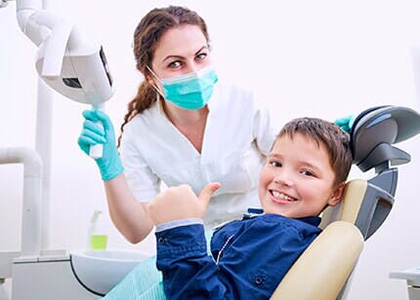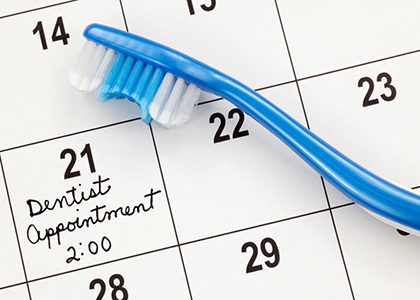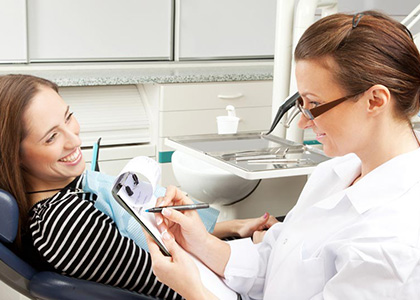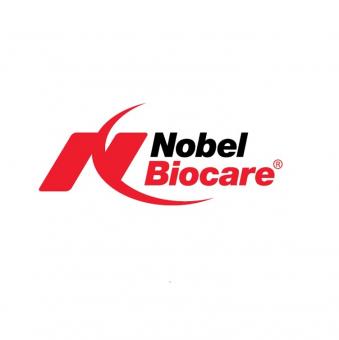Lip Ulcers
What are Lip Ulcers?
Lip ulcers are common, painful sores that appear on the lips or around the mouth and can significantly impact daily life. In this article, you will learn about the possible causes, symptoms, treatments, and the most effective ways to prevent lip ulcers. Additionally, the article covers home remedies and answers frequently asked questions about lip ulcers. This condition is an important health issue, and understanding it is crucial for anyone who has experienced it or wants to prevent its occurrence.
What Causes Lip Ulcers?
Lip ulcers can be triggered by several factors, and they are often associated with the type of ulcer that develops. Here are the most common causes:
Herpes Simplex Virus (HSV)
The most common cause of herpetic lip ulcers is the herpes simplex virus, which has two main types: HSV-1 and HSV-2. HSV-1 typically causes lip and mouth sores, while HSV-2 usually affects the genital area. The herpes simplex virus is highly contagious and spreads through direct contact, such as kissing or sharing utensils. Although the virus may not cause symptoms immediately after infection, it can become active later, leading to lip ulcers when the immune system is weakened by stress or illness.
Injuries
Physical trauma to the lips or the inside of the mouth is another common cause of lip ulcers. Such injuries can occur from accidentally biting the lip, burning the lips with hot food or drinks, or consuming sharp foods like chips. These injuries irritate the mucous membrane, leading to the formation of ulcers.
Weakened Immune System
A weakened immune system also increases the risk of lip ulcers. When the immune system is compromised due to stress, illness, or malnutrition, the body becomes more vulnerable to infections caused by viruses, bacteria, and other pathogens that can lead to lip ulcers.
Allergies
Certain foods, medications, or even cosmetic products can trigger allergic reactions, resulting in lip ulcers. These reactions typically cause redness, swelling, and irritation that can develop into sores on or around the lips.
Nutritional Deficiencies
Lack of essential vitamins and minerals, such as B vitamins, zinc, or iron, is also linked to the development of lip ulcers. These nutrients are crucial for proper immune function and tissue regeneration. When the body doesn't receive enough of these nutrients, the tissues become more susceptible to damage and infection, leading to ulcers.
Hormonal Changes
For women, hormonal changes related to the menstrual cycle, pregnancy, or menopause can increase the likelihood of developing lip ulcers. These changes can affect immune system function, making the body more prone to ulcer formation.
Cancer
In rare cases, lip ulcers may indicate a more serious issue, such as malignant tumors. These ulcers persist for long periods and do not heal without proper treatment. If a lip ulcer lasts for more than two weeks or progressively worsens, it is important to consult a doctor, as it could be a sign of cancer.
Types of Lip Ulcers
Lip ulcers can be categorized into different types based on their causes and appearance. Below are the most common types:
Herpetic Lip Ulcers
Caused by the herpes simplex virus, herpetic ulcers usually appear as small, painful blisters around the lips or mouth. These blisters often form in clusters and eventually break open, forming sores. Herpetic lip ulcers are often accompanied by symptoms like fever, headache, and general discomfort. These ulcers tend to recur, particularly when the body is weakened by stress or illness.
Aphthous Ulcers
Also known as canker sores, aphthous ulcers primarily occur inside the mouth but may also appear on the lips. These ulcers are typically round or oval in shape with a whitish center and a red border. They can be extremely painful, especially when eating or drinking. Although the exact cause of aphthous ulcers is not always clear, they are often associated with stress, a weakened immune system, or sensitivity to certain foods.
Traumatic Ulcers
Traumatic ulcers result from physical injuries, such as biting the lip, using a rough toothbrush, or consuming hot or sharp-edged food. These ulcers are usually non-infectious and heal relatively quickly with proper care. However, if the injury continues to irritate the area, healing may take longer.
Cancerous Ulcers
Though rare, persistent lip ulcers could be a sign of oral cancer. These ulcers do not heal on their own and require medical attention. If a lip ulcer lasts for more than two weeks, enlarges, or causes significant pain, it is essential to seek medical advice to rule out malignancy.
Symptoms of Lip Ulcers
Lip ulcers are typically easy to identify due to their painful and visible nature. The following are the most common symptoms:
Pain and Burning Sensation
The most common symptom of a lip ulcer is pain and a burning sensation in the affected area. This discomfort is often aggravated by eating, drinking, or speaking.
Redness and Swelling
The area around the ulcer often becomes red and swollen, making the ulcer more noticeable. This inflammation is a natural response as the body attempts to fight the infection.
Blisters and Sores
In the case of herpetic ulcers, small blisters may form on the lips. These blisters eventually burst and turn into painful sores. In some cases, multiple sores merge, creating larger, more painful ulcers.
White or Yellow Center
Aphthous ulcers often have a characteristic white or yellow center, surrounded by a red border. This distinct appearance helps differentiate aphthous ulcers from other types.
Discharge
In severe cases, the ulcer may discharge fluid, which can increase pain and delay the healing process. Discharge may indicate infection and require medical treatment.
Fever and Other Symptoms
Herpetic lip ulcers are often accompanied by fever, headache, and general malaise, as the body responds to the viral infection. These symptoms usually appear alongside the ulcers.
Treatment for Lip Ulcers
The treatment of lip ulcers depends on the type and severity of the ulcer. Below are the most common treatment methods:
1. Treatment for Herpetic Lip Ulcers
Antiviral medications such as acyclovir, valacyclovir, and famciclovir are commonly prescribed to reduce symptoms and speed up recovery. These drugs help lower the virus replication rate and lessen the severity of symptoms. It is essential to start these medications as soon as the symptoms appear for the best results.
Topical Treatment
Antiviral creams and gels can be applied directly to the ulcer to reduce pain and accelerate healing. These topical treatments should be applied at the first sign of symptoms to prevent the spread of infection.
Systemic Treatment
For more severe cases, particularly when ulcers frequently recur, a doctor may prescribe systemic antiviral treatment in tablet form. This treatment helps prevent recurrences and reduces the severity of symptoms.
2. Treatment for Aphthous Ulcers
Several topical treatments are available for aphthous ulcers, including mouthwashes, gels, and ointments that reduce pain and promote healing. Common treatments include corticosteroids to reduce inflammation and anesthetic gels to alleviate pain.
Corticosteroids
Steroid-based gels and ointments effectively reduce inflammation in aphthous ulcers and speed up the healing process. These treatments are particularly helpful for large or painful ulcers.
Pain Relievers
Topical anesthetic gels and sprays can be applied to the ulcer to numb the area and make eating and speaking more comfortable.
3. Treatment for Traumatic Ulcers
Traumatic ulcers usually heal on their own without treatment, but anesthetic gels or antiseptic mouthwashes can help relieve pain and prevent infection. It is important to identify and eliminate the source of the injury to prevent further ulcers.
Wound Healing Aids
Various wound healing gels and ointments can speed up the healing of traumatic ulcers by forming a protective layer over the ulcer.
4. Treatment for Cancerous Ulcers
If a lip ulcer is suspected to be cancerous, immediate medical intervention is necessary. Treatment may include surgical removal, radiation therapy, or chemotherapy, depending on the tumor's type and stage.
Surgical Intervention
Surgery is required to remove the tumor and the affected surrounding tissue. This treatment is necessary if the tumor is large or deep within the tissues.
Radiation and Chemotherapy
Radiation and chemotherapy are used to target and destroy cancer cells, especially when the tumor cannot be completely removed through surgery.
Home Remedies for Lip Ulcers
Here are some popular home remedies that may help treat lip ulcers:
Ice
Applying ice to the ulcer can reduce pain and swelling. Hold the ice on the ulcer for a few minutes to relieve symptoms. The cold temperature helps slow blood flow, reducing inflammation.
Salt Water
Rinsing with salt water disinfects the ulcer and promotes healing. Mix one teaspoon of salt in a glass of warm water and rinse your mouth several times a day.
Chamomile Tea
Chamomile has anti-inflammatory properties, and rinsing or applying a chamomile tea compress to the ulcer can soothe symptoms and promote healing.
Honey
Honey has antibacterial properties and can help prevent infection and promote healing when applied to the ulcer.
Prevention of Lip Ulcers
Several methods can help prevent the development of lip ulcers:
Hygiene
Maintaining good oral hygiene, including regular brushing and flossing, helps prevent infections that could lead to ulcers.
Boosting the Immune System
A healthy lifestyle, balanced diet, regular exercise, and adequate rest can help strengthen the immune system, reducing the risk of lip ulcers.
Stress Management
Stress is often a trigger for lip ulcers, so stress management techniques such as meditation or yoga can help reduce the likelihood of developing ulcers. Managing stress is particularly important as it has a direct impact on the functioning of the immune system.
Nutrition
Adequate intake of vitamins and minerals, especially B vitamins, zinc, and iron, can help prevent lip ulcers. A healthy diet provides the necessary nutrients for tissue regeneration and strengthens the body’s defense against infections.
Avoid Irritants
Avoiding sharp, spicy, or acidic foods and using soft toothbrushes can reduce the risk of lip ulcers. Irritants often cause injuries to the lips or the oral cavity, leading to the development of ulcers.
Frequently Asked Questions about Lip Ulcers
Are lip ulcers contagious? Herpetic lip ulcers are contagious and can spread through direct contact, such as kissing or sharing utensils. However, aphthous and traumatic ulcers are generally not contagious.
How long does it take for a lip ulcer to heal? The healing time for a lip ulcer depends on its type and severity. Herpetic lip ulcers typically heal within 7-10 days, while aphthous ulcers can take 1-2 weeks.
When should I see a doctor for a lip ulcer? You should see a doctor if a lip ulcer does not heal within two weeks, if it is large or particularly painful, or if it frequently recurs. Additionally, if the ulcer is accompanied by fever, swollen lymph nodes, or other unusual symptoms, medical attention is needed.
What is the connection between stress and lip ulcers? Stress plays a significant role in the development of lip ulcers, especially in herpetic and aphthous ulcers. Stress weakens the immune system, allowing viruses or other factors to activate and contribute to ulcer formation.
How can I quickly get rid of a lip ulcer? To speed up the healing process of a lip ulcer, it’s important to treat the symptoms immediately with antiviral medications or topical pain relievers. Home remedies such as saltwater rinses, ice, or chamomile tea may also help accelerate recovery.
Can lip ulcers be prevented? Preventing lip ulcers involves maintaining good oral hygiene, adopting a healthy lifestyle, managing stress, and ensuring proper nutrition. Avoid irritants and address any nutritional deficiencies to further reduce the risk of developing ulcers.
Effective Lip Ulcer Treatment at Fehérvári Dental
Don’t let painful and unpleasant lip ulcers disrupt your daily life! The expert team at Fehérvári Dental is ready to help you get rid of these stubborn ulcers and restore your comfort. With modern technology, personalized treatment plans, and compassionate care, we ensure that you receive the necessary treatment as quickly and effectively as possible.
Whether it’s a herpetic ulcer, aphthous ulcer, or any other oral issue, at Fehérvári Dental we offer comprehensive solutions that provide long-lasting relief. We also offer practical advice and preventive strategies to help you avoid future recurrences.
Don’t wait any longer! Contact us today to schedule a consultation and find a solution to your problem together. Trust the renowned professionals at Fehérvári Dental, because your smile’s health is our priority!
Book an appointment now!




















